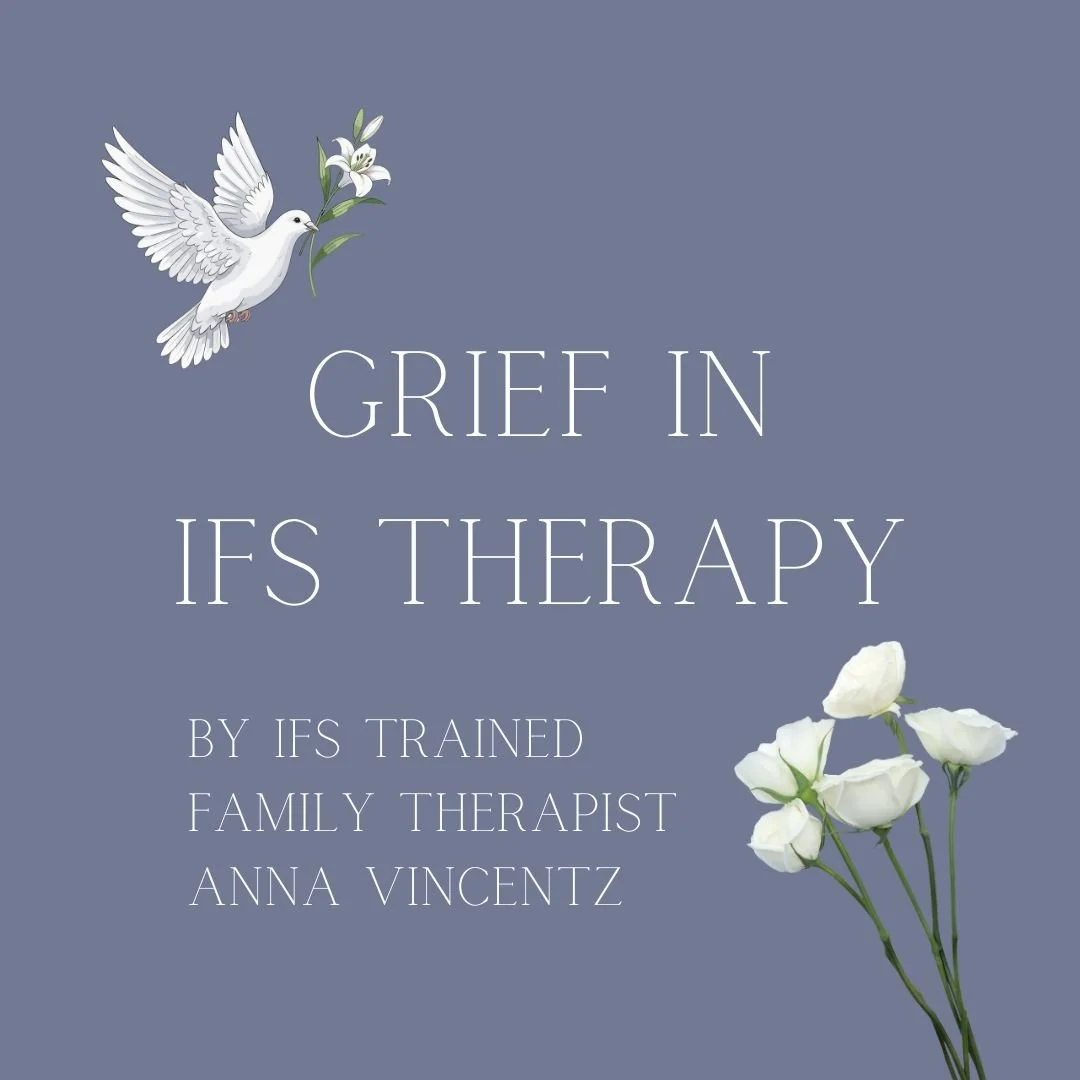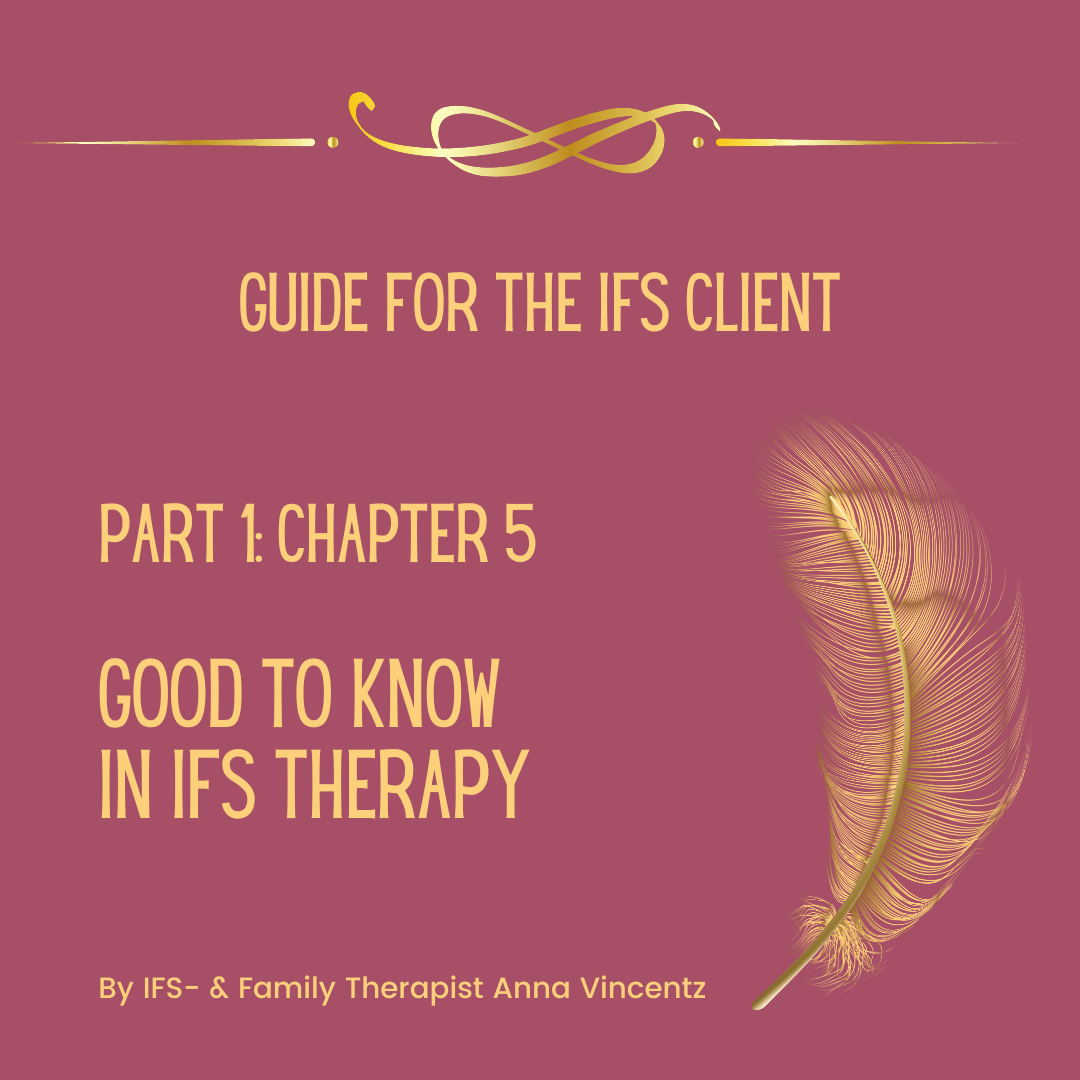This article helps understand grief a state rather than simply an experience of individual parts and goes into how attachment and loss is deeply connected.
Read MoreFight, Flight, Freeze and Fawn are deep survival responses from your nervous system that not only give you the best chances of survival in acute and prolonged stressful — or even life and death — situations, they also form your life and your way of being in the world more broadly and creatively than you may be aware of.
Read MoreIn this Part 2 of Guide for the IFS Client the focus is on being with between sessions and on your own.
You get a lot of tools and ideas for connecting with your parts in ways that feel right for your inner system.
Many therapy modalities and superficial views on human behavior are only seeing the crime of shame, the outcome of shame, the symptoms and the top layer pain, and therefore wish to banish shame altogether, thinking it is hurtful and unnecessary to modern day (wo)man.
But shame is not the problem. Shame protects in the absence of love.
Read MoreIn this third and last principle of New Danish Parenting (NDP), we dive into three important parts of doing just that, when we look at: (1) The parent as responsible for the relationship, (2) Personal leadership and (3) Becoming conscious on the inside.
Read MoreNew Danish Parenting (NDP) is the the new paradigm of parenting and being a human being in the world of relationships.
Through the lens of Internal Family Systems (IFS), attachment theory and the new child view from Denmark, NDP helps you understand yourself and your children from the inside out.
On Parenting from the Inside Podcast we have released our third episode: New Danish Parenting (part 1): Children Always Make Sense.
In this article I will dive into this first principle of New Danish Parenting, which includes: (1) Children are born competent and social, (2) Children need to be translated and (3) Meet children where they are, not where we want them to go.
Attachment is about the relationship the child establishes to the caregiver or parent. This relationship will be on a continuum between very secure and very insecure. And the more secure — or safe — this relationship is, the safer the child feels on the inside as well.
Read MoreChapter 5 of Guide for the IFS Client focus on parts and constellations that are good to know about in IFS therapy: parts that perform and over-cooperate, Self-like parts, thinking parts, dissociation and polarisations.
Read MoreHere’s 5 things I want parents to know about Internal Family Systems (IFS) and 5 simples steps towards a more balanced relationship inside and out. In this article you also find the link to my podcast “Parenting from the Inside”.
Read MoreThis guide aims to help create an understanding of ourselves and each other from the inside.
Read MoreChapter 3 of “Guide for the IFS Client”: About IFS therapy, IFS view, why and how we take on burdens through childhood and how they can be expressed in our relationships and in the family.
Read MoreDepending when (and how) trauma occurs, it is stored in different layers of our internal system.
Read MoreChapter 2 of “Guide for the IFS Client” Self is the inner parent to our system of parts.
Read MoreBody and mind as separate entities is an illusion and when we bring awareness to what is already present in ourselves and in each other, we open up to our own inherent wisdom.
Read MoreChapter 1 of the “Guide for the IFS Client” focus on the inner system of parts.
Read MoreIn the Unburdening process the Self of the client will not just be the secure inner attachment figure for the part, but will witness the part and what it is stuck with, and be there in exactly the way the part needed someone to be there at the time of the trauma, so it is not alone anymore.
Read MoreFor many parents psychotherapy (in the form of individual therapy, couples therapy or family therapy) is a big help when family life is difficult — which it is in different ways for all of us since parenting and romantic relationships can bring us in contact with deep woulds and patterns — and thereby have the potential for important self development.
Read MoreInternal Family Systems, New Danish Parenting and The Good Intention.
Read More


















